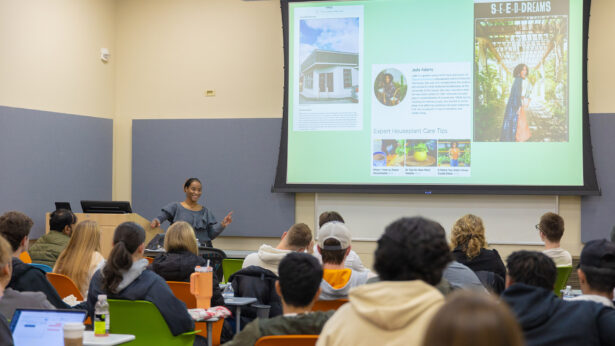A quarter century has come and gone since 1985, but several events of that year stand as milestones in University of Tennessee history
Top 5 of ’85 countdown
5. Alex Haley, the Pulitzer Prize–winning author of Roots, joined UT Knoxville as an adjunct professor. Roots sold millions of copies and was developed into a miniseries that attracted the largest television audience ever up until that time. Haley, also the author of the acclaimed The Autobiography of Malcolm X, presented lectures that attracted large campus and community audiences, and he donated his personal papers to UT Knoxville’s University Libraries. He lived in Norris, Tennessee, just outside Knoxville and died in 1992.
4. Doug Dickey was named men’s athletics director at UT Knoxville. Dickey had left his post as head football coach at UT and gone to Florida as head coach in 1969. Some simmering bad feelings emerged when he resurfaced back at Tennessee, but as AD, Dickey oversaw a major upgrade that resulted in UT athletics facilities’ ranking among the best in the nation. Neyland Stadium grew to more than 100,000 seats, skyboxes were added, and the Lindsey Nelson baseball stadium and Thompson–Boling arena were completed.
3. UT debuted its first Chairs of Excellence, $1-million endowed professorships funded half by the state and half from private contributions. The program was created by then-governor Lamar Alexander and the Tennessee General Assembly. The chairs were a trailblazing effort to enable the university to attract distinguished faculty members, and the positions still exist at all the UT campuses.
2. Dr. Bill Bass, founder of UT’s “Body Farm,” reigned as the national professor of the year. Largely because of Bass, UT has grown into a global leader in forensic science. He was the inspiration for the character of Lyle Shade in Patricia Cornwell’s novel The Body Farm. Subsequently, UT and several partners established the one-of-a-kind National Forensic Academy, which trains law enforcement officers from all over the nation.
1. Higher admission standards were adopted. The UT Board of Trustees approved a revised list of high-school units required for admission to the Chattanooga, Knoxville, and Martin campuses, strengthening admission requirements in math, science, and foreign languages. The tougher standards went into effect in 1989, state school systems adjusted accordingly, and Tennessee’s academic achievement ratcheted up a notch.



